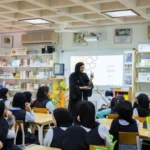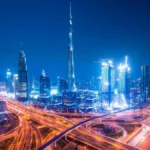The fall of Aleppo, Syria’s second-largest city, to Islamist-led rebels has caused widespread displacement and fear for many. However, for some like Bahria Bakkur, it brought long-awaited reunions.
After nearly a decade apart, 43-year-old Bakkur finally reunited with her son. They had been separated when government forces regained control of their city years ago.
A Joyful Yet Bittersweet Reunion
Bakkur’s son, Mohammed Jomaa, now 25 and a father of four, fled Aleppo in 2016 when President Bashar al-Assad’s forces retook the eastern parts of the city after a prolonged siege. Since then, Jomaa lived in rebel-held Afrin, about 40 kilometers away.
“When Aleppo fell, I didn’t think I’d ever see my son again,” Bakkur said with tears in her eyes. “I thought I would die waiting.”
For Jomaa, returning home was a mix of joy and disbelief. “I still can’t believe I’m back in Aleppo,” he said. Despite the happiness, his reunion felt incomplete as his father has been missing since being detained by regime forces in 2016.
“I only wish my dad would come back,” Jomaa said, expressing his lingering pain.
Others Returning Home
The ongoing fighting has displaced over 115,000 people across northern Syria, according to the United Nations. Yet, some displaced individuals are making their way back to Aleppo, hoping for safety and reunions.
Ahmed Orabi, a media activist, returned to Aleppo to reunite with his young daughter after years apart. Fleeing from escalating violence in Idlib, his wife and daughter had sought safety with relatives in Aleppo.
“When I saw my daughter and called her name, it felt like a dream,” Orabi said. “I regret the years we lost, but I’m here now to make new memories.”
Mixed Emotions in Aleppo
Though some areas of Aleppo remain quiet, residents are on edge, fearing further violence. Families like Bakkur’s and Orabi’s are cherishing moments of reunion amidst the uncertainty.
For Orabi, reconnecting with his daughter brought a sense of purpose. “I didn’t know what being a father truly felt like until I held her again,” he said. “Now, I’m making up for lost time.”
With his daughter by his side, Orabi visits local parks, creating moments of joy and normalcy in a city still grappling with the aftermath of war.
Conclusion
As Aleppo sees the return of some of its residents, stories of reunion, resilience, and hope emerge, providing a glimmer of light amid the ongoing conflict. Families like Bakkur’s and Orabi’s remind us of the enduring human spirit even in the darkest times.





